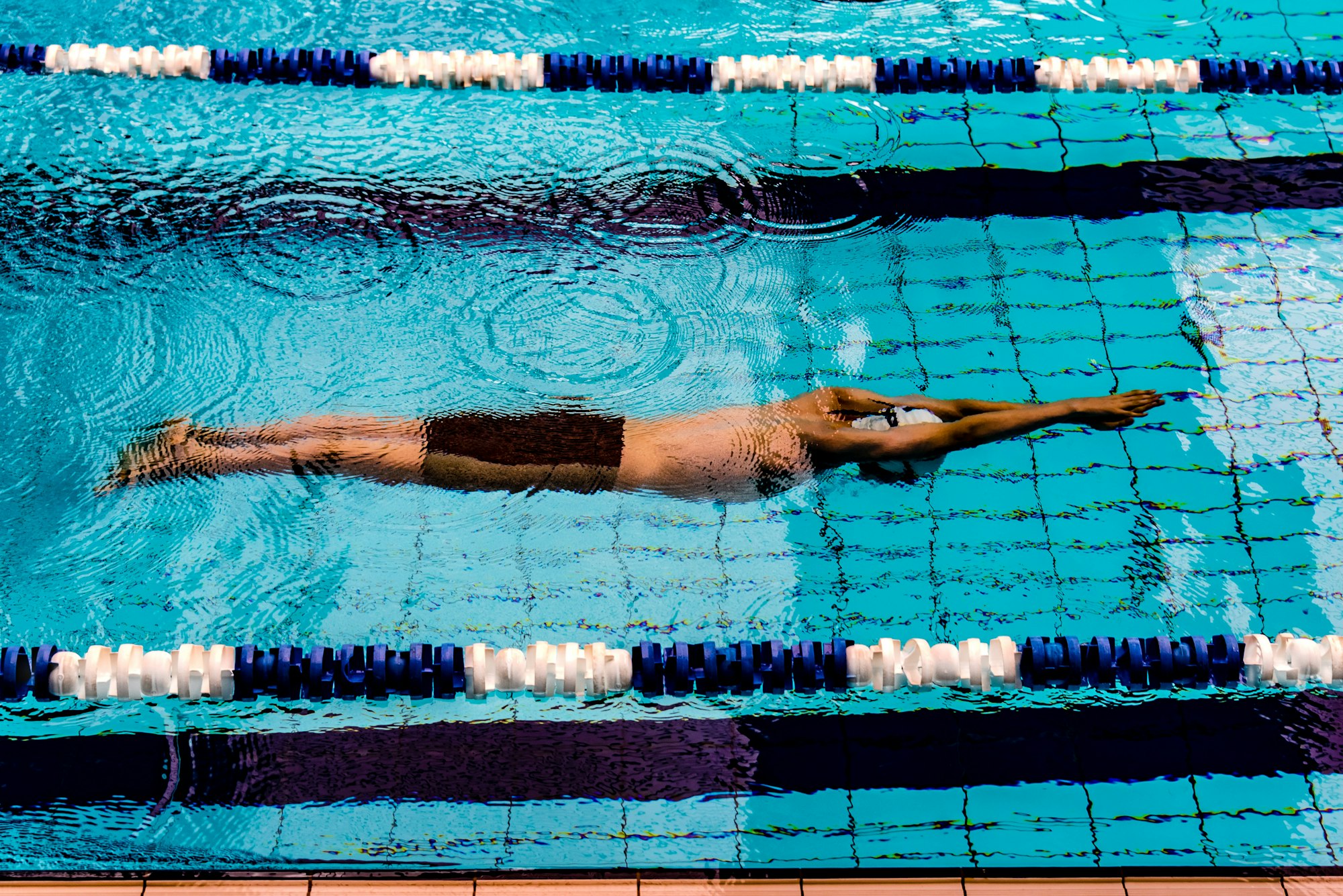jumping into the deep end
You jump into the pool and you start to flail your arms and legs in a wild fashion. With frenetic quantities of thrashing, you manage to stay afloat. Or so you thought. You sink to the bottom. Panic ensues. Someone kindly pulls you out of the water where you gasp and cough and hack your lungs out.
If you do this with reasonable regularity and learn to not panic, you can learn to stay afloat by cycling your arms and legs in the water. Graceful flailing, let's call it.
While learning to stay afloat is a useful life skill, it is not swimming. And until you learn to swim, that complete confidence and mindset of not panicking do not set in.
learn a stroke
That's why we are taught a stroke or two, as part of learning to swim. We learn to breathe and we learn to propel ourselves forward. Locomotion happens in the water, and as we understand the skill required for this, we get even better at the stationary cycling bit. Even when we sink, we stay calm and push the bottom off and come right back up to the surface.

No one should confuse a graceful freestyle stroke with flailing their arms about. Even if you manage to do that with a ballerina-like grace. And even if you continue staying afloat. Because that's not swimming.
Duh, you say.
learning to lift
This applies across the board, to any skill you are trying to learn. As always, I'll stick to my area of expertise - lifting weights or eating well. Because we've lifted our couch or dining table does not mean we know to lift them well. Or use/utilise our body to reasonable stress that we should. Because we've dumped food into our mouth all these years daily, it still does not make us an expert in knowing what to eat.
We've learned to flail. And we've had years and years of practice at wildly flailing. We might've convinced ourselves that we are rather decent at it.
But we don't even know a proper stroke.
I see many instances of flailing wildly. Trying insane diets, going ridiculously low on calorie intake, removing carbs or fats or whatever is the enemy completely - unfortunately, these are too common an occurrence. Likewise, doing boot camp workouts, running every day, throwing the kitchen sink at your body while saying "no pain, no gain", beating it up with metcons with regularity.
I don't think there are any awards for doing that.
Instead
While there are many methods and ways to practice, this fitness and nutrition thing can be as simple and graceful as learning a stroke. Until you do, it seems like magic from the outside. Once you learn it, you realise it is simply a skill that one needs to take time to master.
I recommend you stop flailing and learn a stroke or two. And in case that's not clear, learn to lift weights with proper technique, have a training plan. And eat more vegetables, drink more water, and eat less crap. And do this for 150 out of the next 200 days of the year and good things will happen.
